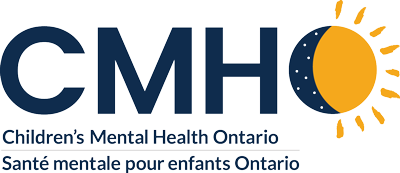D2-1: Implementation of DBT–Kids Within a Children’s Community Mental Health Program
Over the past number of years, the outpatient mental health programs at Kinark Child and Family Services have observed an increase in the number of youth aged 12 and under being referred due to challenges with regulating emotions, leading to physical and verbal aggression toward others, as well as self-harm and suicidal urges and threats. Historically, the treatment of these children tends to be lengthy, with challenges applying the skills learned in treatment when the child is in the home and school environments.
Theories within Dialectical Behaviour Therapy (DBT) provide us with a way of understanding these children. Dr.’s Alan and Armida Fruzzetti recently developed the DBT-Kids program to better support preadolescent children (ages 7 – 12) within the context of their families, and to address some of the common treatment challenges faced within outpatient services. The DBT-Kids program involves children learning developmentally adapted DBT skills, caregivers learning to use DBT skills within their caregiving responses, and most uniquely, family therapy, where they gain skills as a family unit.
This presentation will review the DBT-Kids program and provide an overview of how DBT-K has been successfully implemented in two of Kinark’s outpatient child and youth mental health programs. We will review the training program offered to staff, timing of the treatment components, size/makeup of the DBT-K teams, as well as the challenges faced during implementation and the plan for program sustainability and evaluation.
Presenters:
Dr. Megan Hancock is a child and adolescent psychologist and the Clinical Lead for Kinark’s Durham Region Child and Youth Mental Health program. Dr. Hancock oversees the clinical programming within this program area and is a DBT therapist within Durham’s DBT-Kids program.
Dr. Graham Trull is Clinical Psychologist and the Clinical Lead for Kinark’s Peterborough and Northumberland Child and Youth Mental Health programs. Dr. Trull oversees the clinical programming within these areas and supports DBT programming for the adolescent outpatient, Live-In Treatment and DBT-Kids programs, as well as practicing as a therapist in the programs.
D2-2: Balancing Acts: Embracing DBT, Community Mental Health, and Educational Partnership
York Hills will present its journey of development, implementation and stories of success in integrating mental health care and supporting students on their journey to wellness and education. This presentation aims to highlight the importance of integrating care within the mental health and education systems, addressing the social determents of health as it relates to the availability of evidence-based treatments, and will speak to the realities of implementing quality standards and measurement-based care within intensive services.
This 90-minute session will be an opportunity to hear about some of the current challenges within resourcing students with intensive needs, speak to the importance of collaboration between education partners and mental health professionals, and present a model for an intensive DBT program within a section 23 Day Treatment classroom. The discussion will focus on key learnings, experiences and outcomes of the DBT Day Treatment Program.
Presenters:
Teresa Knibb is a compassionate registered psychotherapist who specializes in Children’s mental Health. Over the last 10+ years she has dedicated her career to understanding and supporting the unique challenges experienced by children, youth and their families. Teresa dedicates her commitment to providing high-quality care and uses creative innovation to re-vision programs and services to meet client needs.
With her love of knowledge, Teresa holds a B.Sc in Psychology from the University of Toronto and a Masters of Divinity in Clinical counselling. At every oppurtunity she seeks to learn and grow. She desires to create safe space for all and has a passion to support mental health within all her spheres of connection.
Melissa is an experienced professional with over 15 years of her career to working in the field of adolescent mental health, providing care and support to individuals from diverse populations. Melissa’s educational background includes a B.A. in Psychology from McMaster University, where she gained a comprehensive understanding of the human mind and behavior. Building upon this foundation, she pursued a Master of Divinity in Clinical Counselling, acknowledging the important role spirituality can play in the lives of individuals grappling with mental health challenges. By integrating spiritual principles with evidence-based therapeutic techniques, Melissa aims to offer holistic care to her clients, addressing their emotional, psychological, and spiritual needs.
In her pursuit of excellence, Melissa has undergone specialized training to enhance her skills and broaden her therapeutic approaches. She received foundational training from BTech and has been trained in Dialectical Behavior Therapy-Prolonged Exposure (DBT-PE) by renowned experts Melanie Harned and Lorie Ritschel.
D2-3: Chaos, Culture, Calm: LOFT TAY’s Reinvention of DBT Service Delivery
LOFT Community Services has a long history of identifying and responding to gaps in service. In this workshop, we will share our collaborative process for delivering services and addressing gaps in order to inform attendees how they can adopt similar models within their agency.
After the development of our initial closed Dialectical Behaviour Therapy (DBT) group, the Transitional Age Youth (TAY) program noticed an increasing demand for young people to receive rapid access to treatment. The TAY program utilized feedback from our service users to inform the development of our drop-in DBT group, “Chaos to Calm”.
Additionally, LOFT strives to incorporate the practice of cultural competency and cultural humility. As such, the TAY program prioritized feedback from our Black, Indigenous, People of Colour (BIPOC) service users to pioneer the accessibility and delivery of culturally informed skills groups. From this need, “Culture & Calm” was born. Culture & Calm acknowledges that DBT was created from a Western viewpoint and offers a safer space to critically analyze and modify the DBT skills to fit the subjective cultural experience of participants. Both Chaos to Calm and Culture & Calm offer youth (16-29) the opportunity to learn skills from the DBT framework in a 90-minute drop-in setting. This design is a low-barrier, non-clinical solution to TAY’s already successful 10-week closed DBT group.
This workshop will demonstrate the adaptations made by LOFT TAY program following Marsha Linehan’s original DBT framework. It will highlight our innovative, research-informed and responsive approach to service delivery.
Presenters:
Brittany Stalker (she/her) is a DBT coach and group facilitator with the Transitional Age Youth (TAY) program at LOFT. She has been working in the mental health field for 13 years in a variety of front line and leadership roles. She and her co-facilitators run five (5) DBT skill groups a week. Brittany also provides one-on-one skills coaching outside of groups, so youth are better supported with a thorough and practical understanding on how to apply DBT to their day-to-day lives.
Michelle Harris (she/her) graduated from Humber College’s Child and Youth Care Practitioner program in May 2018. For the past five years, she has worked as a community treatment worker with LOFT’s Transitional Age Youth (TAY) program where she provides case management to youth between the ages of 16-25 who are navigating the intersection of mental health and substance use. In addition to case management, Michelle is a co-facilitator for TAY’s DBT programs, including the DBT drop-in group Chaos to Calm and the 10-week closed DBT skills group.
Regene Mallare (she/her) was a service-user who participated in LOFT TAY’s DBT program back in 2021. With her lived expertise and direct experience on how accessible DBT programs can lead to positive outcomes, she has since transitioned from being a service user to an active service provider. Regene currently works as a community support worker with the Housing Outreach Project Collaborative (HOPC) program and a peer support worker who co-facilitates the DBT closed, Chaos to Calm, and Culture & Calm groups. She is a member of TAY’s Allyship team and actively involved in learning how DBT skills can be made more relevant to culturally diverse experiences.
Jaimee LeBlanc (she/her) is a coordinator at LOFT Transitional Age Youth (TAY) program. Previously, she worked as a community support worker with the Doorways for Youth program, serving youth living in the Toronto North/Northeast area. Through this program, Jaimee co-developed a youth mindfulness-based group with Humber River Hospital’s Adolescent Mental Health Unit. Jaimee co-chairs TAY’s Allyship team which leads Diversity, Equity, and Inclusion (DEI) initiatives. Here, she supported the creation and implementation of the BIPOC DBT drop-in group, Culture & Calm.

